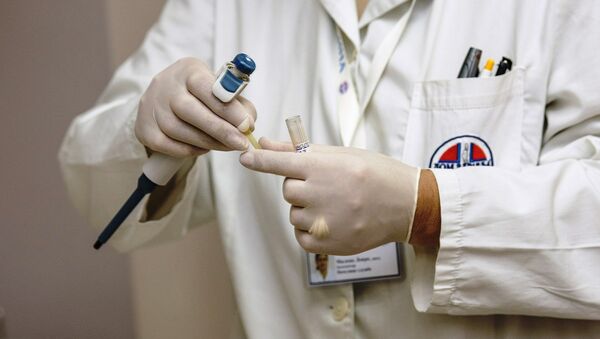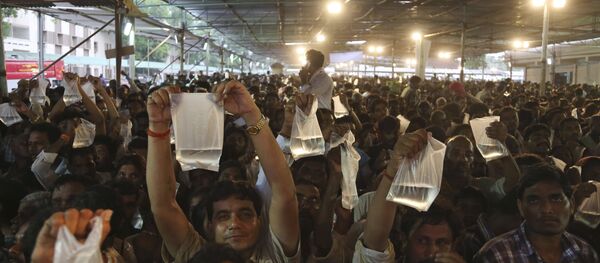Revita Life Sciences of India, which specializes in stem cell therapy, and Bioquark, a Philadelphia-based company that was supposed to supply the trial with specialized chemicals to regenerate brain cells, were then given an Institutional Review Board (IRB) approval from the Anupam Hospital in Rudrapur, Uttarakhand, India.
Ira Pastor, CEO of Bioquark Inc, explained to Radio Sputnik the nature of the project.
"The ReAnima project started as a very unique attempt using the tools of regenerative medicine, both cellular and biologic, to begin to explore the possibilities for neural and vascular regeneration in the brain stems of recently deceased subjects, an area of research known all over the world as 'living cadaver' research, which falls outside of the realm of traditional research. This is the nature of the program," he said.
During the first stage, the trial, which was supposed to run until April 2017, sought to bring around twenty brain-dead accident victims back from what science considers to be irreversibly dead to a "minimal conscious state." The latter means that patients would have been able to show moments of consciousness, such as movement of their eyes.
Brain death is described as the irreversible and complete loss of brain function including the involuntary body functions that keep a person alive. However, a body that has suffered brain death can still be kept alive through life support.
Through the use of stem cell and peptide injections, lasers and nerve stimulation, Pastor’s team hoped to help parts of the brain and the central nervous system repair and even regrow themselves in the same way that some amphibians and fish can regenerate parts of themselves.
Pastor believes that research on 'living cadavers' that has already been undertaken in the last few decades shows some promise.
"The nature of the protocol created for ReAnima was for the regeneration, and ultimately the reanimation of neural tissue in those who were declared recently deceased but were still on life support," he said.
"That is still the core nature of the project and we will be moving forward on that. But we like to point out that obviously when we get a lot of hype in the press in terms of zombies and so forth, at the end of the day studying this mode of regeneration of the central nervous system has a much broader applicability that can be generated out of it beyond just the source of consciousness," he said.
Commenting on the situation, the trial team said the Council was overstepping its jurisdiction and that the matter rested with the drug controller.
Those behind the trial have also vowed to continue it outside India if necessary.
"Even in 2016 we know very little about the nature of death and that is why it is crucial that we undertake a project of this nature," Pastor told Sputnik.
Things are not always black and white when it comes to death, he added.
"We are in no major rush, in that it represents a Google Moonshot–style project,” he told Sputnik. “Many road blocks, no doubt, will pop up. But the project will go on."




